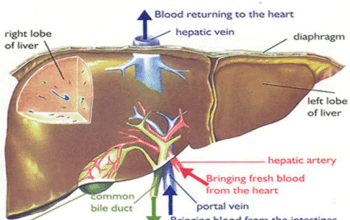Obesity is a complex chronic disease that affects millions of people worldwide, yet it remains shrouded in misconceptions and myths that can prevent individuals from seeking appropriate treatment and support. Understanding the true nature of obesity is crucial for effective health management and reducing the stigma associated with this medical condition.
Obesity: More Than Just a Lifestyle Choice
Contrary to popular belief, obesity is not simply a result of personal weakness or lack of willpower. Medical research has consistently shown that obesity is a multifaceted chronic disease influenced by numerous factors, including:
- Genetic predispositions
- Metabolic processes
- Hormonal imbalances
- Environmental conditions
- Medications
- Psychological factors
Global health statistics reveal the staggering impact of obesity. According to the World Health Organization, worldwide obesity has nearly tripled since 1975, with more than 1.9 billion adults overweight and over 650 million clinically obese. These numbers underscore the critical need to understand obesity as a serious medical condition that requires comprehensive and compassionate approach.
Debunking Common Obesity Myths
Myth: Obesity is Solely About Diet and Exercise
While nutrition and physical activity play significant roles in weight management, they are not the only determining factors. Research indicates that genetic factors can contribute up to 70% of an individual’s predisposition to obesity. Some people may struggle with weight despite following strict diet and exercise regimens due to underlying medical conditions such as:
- Hypothyroidism
- Polycystic ovary syndrome (PCOS)
- Cushing’s syndrome
- Certain medication side effects
Nutrition and Weight Management Misconceptions
Many popular diet trends perpetuate harmful myths about nutrition. Restrictive diets like extreme low-carb or no-carb approaches often lead to temporary weight loss but can cause long-term nutritional deficiencies. A balanced, sustainable approach to nutrition is key to successful weight management.
Nutritionists recommend focusing on:
- Diverse, nutrient-rich food choices
- Portion control
- Regular meal times
- Adequate hydration
- Individualized nutrition plans
The Dangerous Impact of Stigma
Social stigma surrounding obesity can have profound psychological and health consequences. Studies have shown that individuals experiencing weight-based discrimination are more likely to:
- Develop mental health issues
- Experience reduced healthcare access
- Suffer from lower self-esteem
- Avoid seeking medical intervention
Effective Strategies for Holistic Weight Management
Successful weight management requires a comprehensive, personalized approach that goes beyond simplistic diet and exercise recommendations. Healthcare professionals suggest a multidisciplinary strategy involving:
- Medical assessment
- Nutritional counseling
- Psychological support
- Physical activity planning
- Potential medical interventions
Moving Forward: Education and Compassion
Addressing obesity requires a fundamental shift in societal understanding. By recognizing obesity as a complex chronic disease and approaching it with empathy and scientific insight, we can develop more effective prevention and treatment strategies.
Individuals struggling with weight should seek professional medical guidance, focus on overall health rather than aesthetic goals, and understand that their worth is not determined by their body size. Healthcare providers, policymakers, and society at large must work together to combat misinformation and create supportive environments for those managing obesity.






